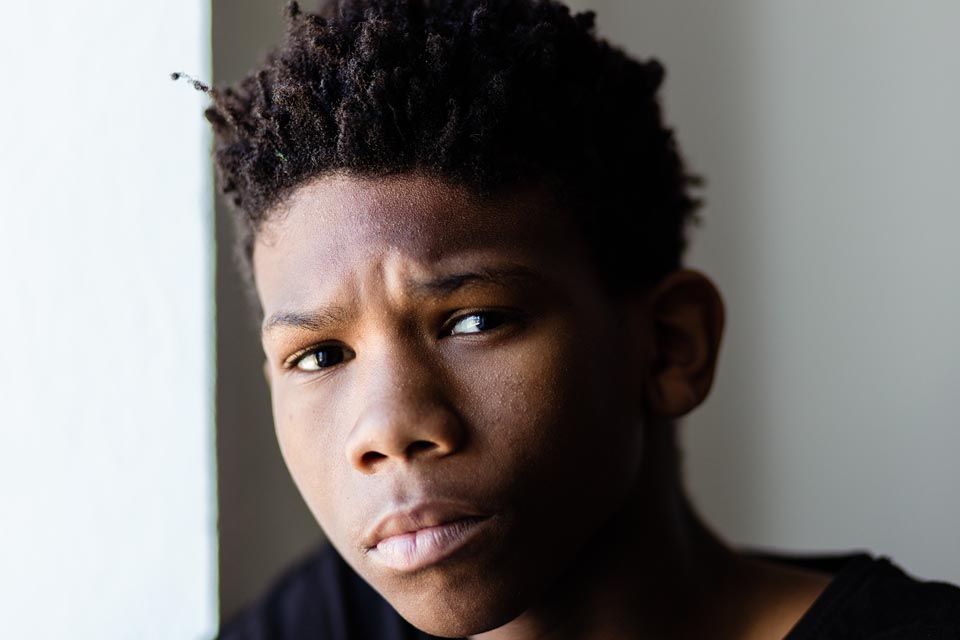Adolescence is a time of rapid and dramatic change as children transition to adulthood.
According to the World Health Organization, “adolescents experience rapid physical, cognitive and psychosocial growth. This affects how they feel, think, make decisions, and interact with the world around them.”
Your preteen or teen is growing into the adult they’ll soon become. Some kids weather the storm of emotions and hormones with no major upheaval. A sneak out here, broken curfew there. Others may act out a little more. Either way, teenagers (and preteens) need structured support to navigate the changes of adolescence. Their new, unpredictable lives could be affecting their mental health. This post will outline a few signs that your child needs more help than a friendly parental chat can provide.
What you should know
Everybody’s stressed. According to a December 2022 poll, 26% of American adults anticipated more stress by January 2023, and 37% rated their mental health as fair or poor. If adults are this bogged down, imagine how their kids must feel.
Look at what The State of Mental Health in America says about teen mental health.
- Over 1 in 10 youth in the U.S. are experiencing depression that is severely impairing their ability to function at school or work, at home, with family, or in their social life.
- 6.34% of youth in the U.S. reported a substance use disorder in the past year.
- 59.8% of youth with major depression do not receive any mental health treatment.
What’s your teen so stressed about?
BNI Treatment reports the top stressors rattling teen mental health include:
- Anxiety
- Depression
- Pressure to succeed
- Body image issues
- Social media
- Sex
- Substance abuse
With so many youths suffering from severe depression, COVID aftermath, and more, it’s vital to spot the signs when your teen needs professional help.
Warning signs
32% of teens struggle with an anxiety disorder which can interfere with daily activities such as job performance, school work, and relationships. That’s on top of transitioning to high school, making new friends, prepping for college, and the horrors of puberty. Their lives can become too much to handle because most teens have yet to develop the tools to manage their stress healthily.
Take immediate action if you’ve noticed significant changes in your teen or feel something could be wrong.
Here are some signs from The Light Program that tell when your teen needs to see a therapist.
- Constantly feeling sad, hopeless, worried, fearful, anxious, or angry
- Having difficulty concentrating or making decisions
- Feeling restless, unable to settle down or focus
- Talking about death or expressing suicidal thoughts
- Talking about harming themselves or others
- Engaging in self-harm behaviors (cutting, hitting, etc.)
- Abusing alcohol or drugs
- Earning poor grades in school or experiencing a sudden drop in performance
- Abandoning activities/hobbies they once enjoyed
- Changing their sleeping/eating habits
- Withdrawing from family and friends
We’d like to emphasize the fascination with death here because suicide is now the second-highest cause of preventable death among people aged 10-34. Do not minimize the words of a teen who is obsessed with death and talks about wanting to die. This is a cry for help.
How to get your child help
There are many different types of mental health disorders and many different kinds of therapists that treat them. Start with your pediatrician when your teen needs to see a therapist. They’ll be able to provide you with a local listing of therapists in the area or give you a referral. The DIY option is also on the table. If your child’s been diagnosed with something, try searching for a therapist who specializes in that area.
Here’s a quick list of therapy options to get you started
- Cognitive behavioral therapy
- Dialectical behavior therapy
- Motivational interviewing
- Group processing
- Interpersonal psychotherapy
- Group therapy
- Family therapy
A word of caution: you may have to shop around.
Therapy is about establishing a trustworthy relationship with a mental health care provider so they can guide patients to a path of healing. If you’re serious about helping your kid overcome the challenges of teen mental health, you should know they may not “click” with the first therapist they meet. Think of it as shopping for shoes, you’ve gotta keep trying them on until you find the pair that fits…the best!
Your teen needs to feel comfortable, confident and safe with a therapist before opening up to them. So take your time helping your teen find the right therapist for their needs.
Parents keen on changes in their teen’s behavior are more likely to spot when something’s off. Experts say that even if you don’t notice any specific symptoms, trust your gut and bring up therapy as a resource to improve your teen’s mental health.
If you have concerns about your teen’s development or behavior, call 211 for assistance and mental health resources, 988 for suicide counseling and crisis, and of course 911 for all emergencies.







